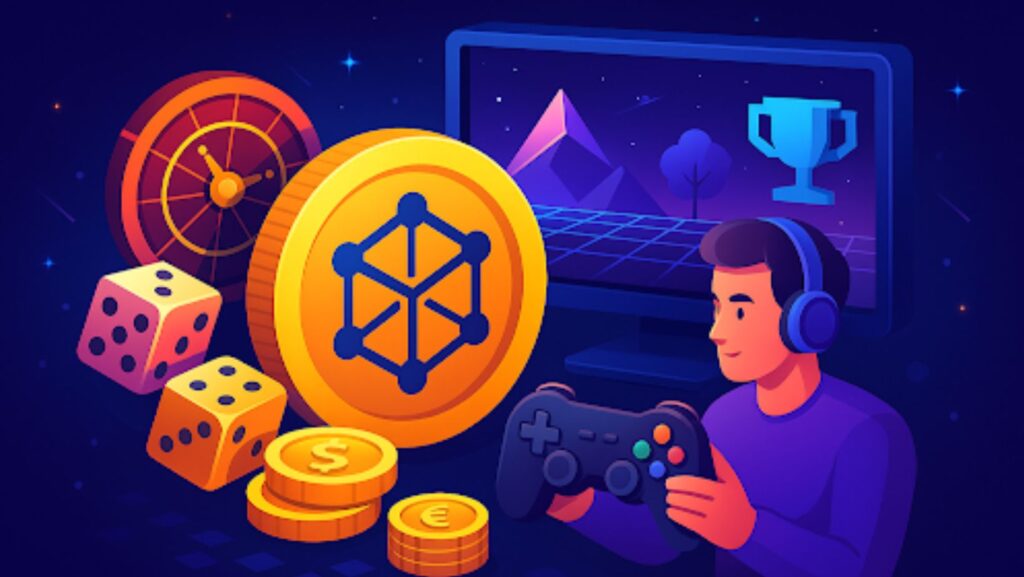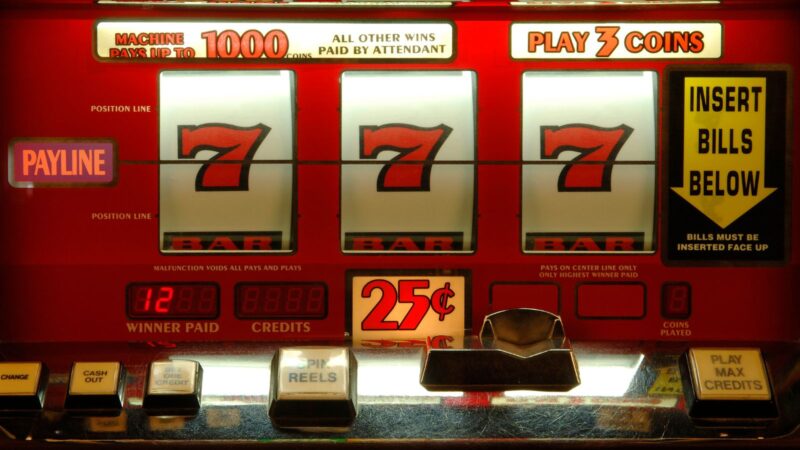
Gaming has never stood still. From noisy arcade halls to polished consoles in our living rooms, from clunky dial-up MMORPGs to today’s global esports arenas — each technological leap reshaped not only how we play, but how we think about games. Now, another shift is unfolding: Web3 gaming.
And this time, players are stepping into worlds they can actually own. And one of the earliest industries to embrace Web3 wasn’t traditional gaming at all — it was gambling.
Blockchain Casinos: Advantages of Trustless Play
Let me tell you, if trust is important in any industry, it’s in gambling. Traditional online casinos always had that nagging reminder: is the algorithm real or does the house have an advantage?
Blockchain casinos took distrust and turned it into proof. Every roll of the dice or shuffle of the card is registered and stored on-chain to be verified by anyone. No excuses, no black boxes.
Combine that with incredibly fast payouts, low fees, and anonymous players, it is easy to see why this part of Web3 is growing exponentially. Curious where to start? The Tron casinos list offers a roundup of platforms built on TRON — a blockchain famous for its speed and cost-efficiency, two things gamblers care about a lot.
From Free-to-Play to Play-to-Earn
For more than a decade, Free-to-Play was the industry’s darling. Games were free to download, but sooner or later you hit a wall: the shiny sword or rare skin you wanted was hidden behind a pay button. You were a guest, not an owner.
Blockchain flipped that model. Suddenly, a digital pet or piece of armor could be minted as an NFT, stored in your wallet, and traded on an open market. The Play-to-Earn (P2E) movement was born.
- Axie Infinity showed the world how big this idea could get, with players breeding and battling creatures while generating billions in NFT trades.
- Illuvium took it a step further, bringing high-end graphics and open-world exploration into the P2E space, proving that blockchain games don’t have to look like browser experiments.
- Player guilds started forming, not just for fun but for profit — pooling resources, lending NFTs, and splitting the rewards.
For the first time, gamers weren’t just grinding inside someone else’s economy. They were shaping their own.

The Metaverse: More Than Marketing
“Metaverse” might sound like another Silicon Valley buzzword, but Web3 projects are already putting it to work.
- In Decentraland, people buy land, build stores, and host conferences — yes, real companies book virtual venues there.
- The Sandbox attracted global brands and musicians, blending concerts, advertising, and gaming into one shared stage.
And outside those headline names, countless players are experimenting with digital fashion, selling one-of-a-kind outfits for thousands of dollars, or renting out virtual real estate like landlords in cyberspace.
These are no longer fictitious worlds. They are real worlds that function as communities with rules, jobs, and economies—without the restrictions of location or the laws of physics.
Fun Facts That Might Surprise You
- TRON has processed casino payouts in under a second — faster than swiping a card at a store.
- Web3 already counts more than two million active gamers each month, and the number keeps climbing.
- One player managed to trade the same NFT sword across three different games in a single week — a glimpse of cross-platform ownership in action.
- Studies suggest blockchain casinos see fewer customer complaints, with disputes dropping by nearly 30% once everything became provably fair.
From Facts to Practice
Beyond individual platforms, many readers are looking for a way to compare features, rewards, and transparency across different operators. That’s why a detailed Casino Overview becomes so valuable, giving players a clear picture of bonuses, speed of payouts, and the level of trust each platform can actually offer.
With so many new casinos appearing in the Web3 space, having this kind of reference point helps separate hype from genuine innovation.
One example that illustrates this shift particularly well is 7Bit Casino. Beyond its technical side, 7Bit has also built a reputation around player experience. The platform blends retro aesthetics with modern crypto functionality, offering an environment that feels both familiar and futuristic.
Regular tournaments, tiered VIP rewards, and instant crypto payouts create a sense of community that goes beyond casual play. It’s this mix of design, innovation, and reliability that helped 7Bit stay relevant while many other crypto casinos came and went.
7Bit Casino: A Web3-Ready Platform
Among crypto casinos, 7Bit stands out for blending retro style with blockchain innovation.
7Bit Casino Key Features
- Multi-crypto support: Bitcoin, Ethereum, Litecoin, and more.
- Provably fair games: transparent results on-chain.
- Regular tournaments & tiered VIP rewards: building player loyalty.
- Instant crypto payouts: winnings often processed in minutes.
- Strong reputation: consistent trust and security.
This 7Bit Casino review shows why the brand survived while many others disappeared. It’s proof of how a casino can evolve into a Web3-ready platform without losing its identity.
What’s Next?
By 2030, analysts believe Web3 titles could make up one-fifth of the global gaming market. But it’s not just about revenue; it’s about reshaping the relationship between players and the worlds they inhabit.
- RPGs with portable loot. Imagine finishing a quest in one game and taking your spoils into another, with your wallet acting as the bridge.
- Esports with real-world stakes. Prize pools wouldn’t just pay winners in cash; they’d deliver instantly tradable tokens, turning tournament glory into economic power.
- Metaverses as everyday hubs. Why jump between Zoom, Spotify, and a dozen shopping apps when you could work, play, and hang out in a single virtual space?
- Casinos blending with DeFi. Picture a platform where your winnings don’t just sit idle — you can stake them, earn interest, or lend them out, all without leaving the casino lobby.
When people talk about the future of blockchain casinos, theory often comes first. But 7Bit Casino is already a working example of those ideas in practice. It bridges the gap between entertainment and technology by supporting multiple cryptocurrencies, running promotions tailored to digital players, and maintaining a fast, secure gaming environment.
For many, it demonstrates how a casino can stay true to its roots while still evolving into a Web3-ready platform.
Final Word
This is the first time in gaming history that players can call themselves co-owners of the universes they explore. They don’t just rent space inside a publisher’s economy; they hold the keys to the assets, the currencies, even the narratives.
Web3 gaming isn’t just another genre. It’s a re-wiring of the relationship between developers and communities, a future where gamers step out of the role of customer and into the role of shareholder. And in that future, the balance of power shifts — finally — into the players’ hands.











